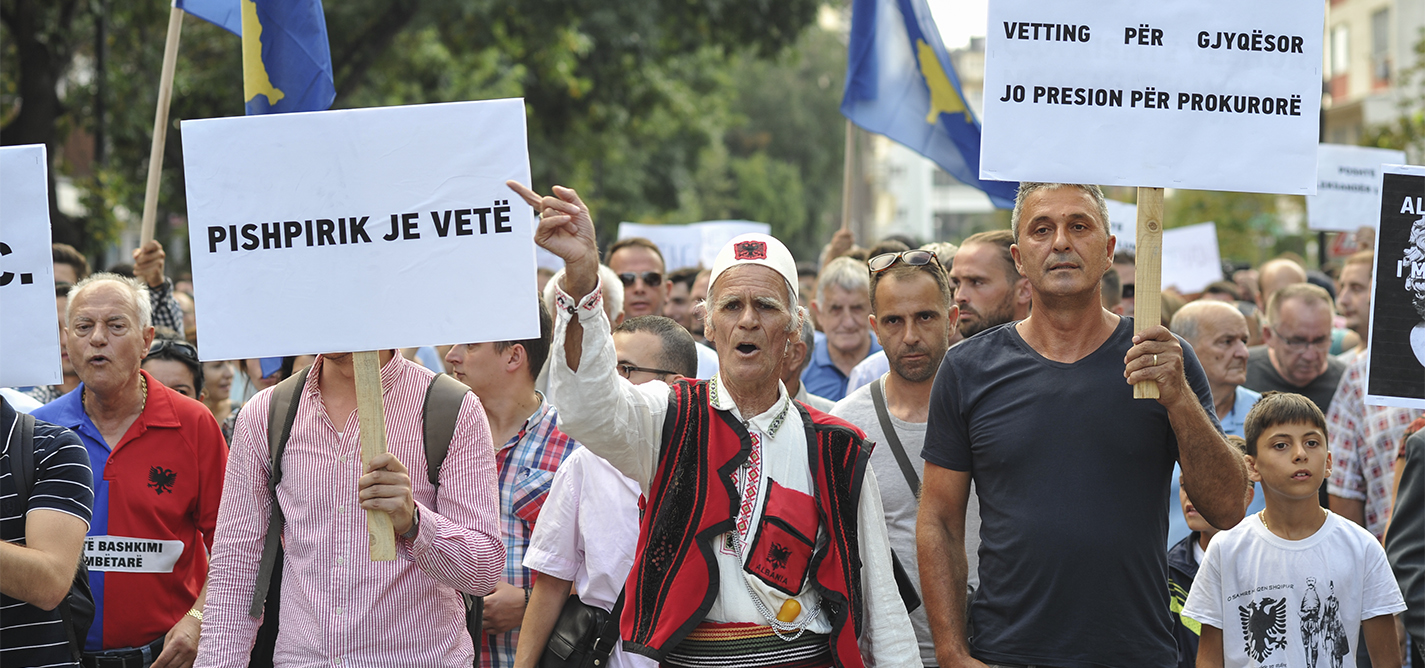
Protesters demand extensive reforms in justice and politics
Resignation of special prosecutor reignites citizen protest movement.
|2018.08.23
|

Ngadhnjim Avdyli
Ngadhnjim Avdyli is a former K2.0 staff journalist, covering mainly politics, governance and social justice issues. He has a degree in journalism from the University of Prishtina.
This story was originally written in Albanian.